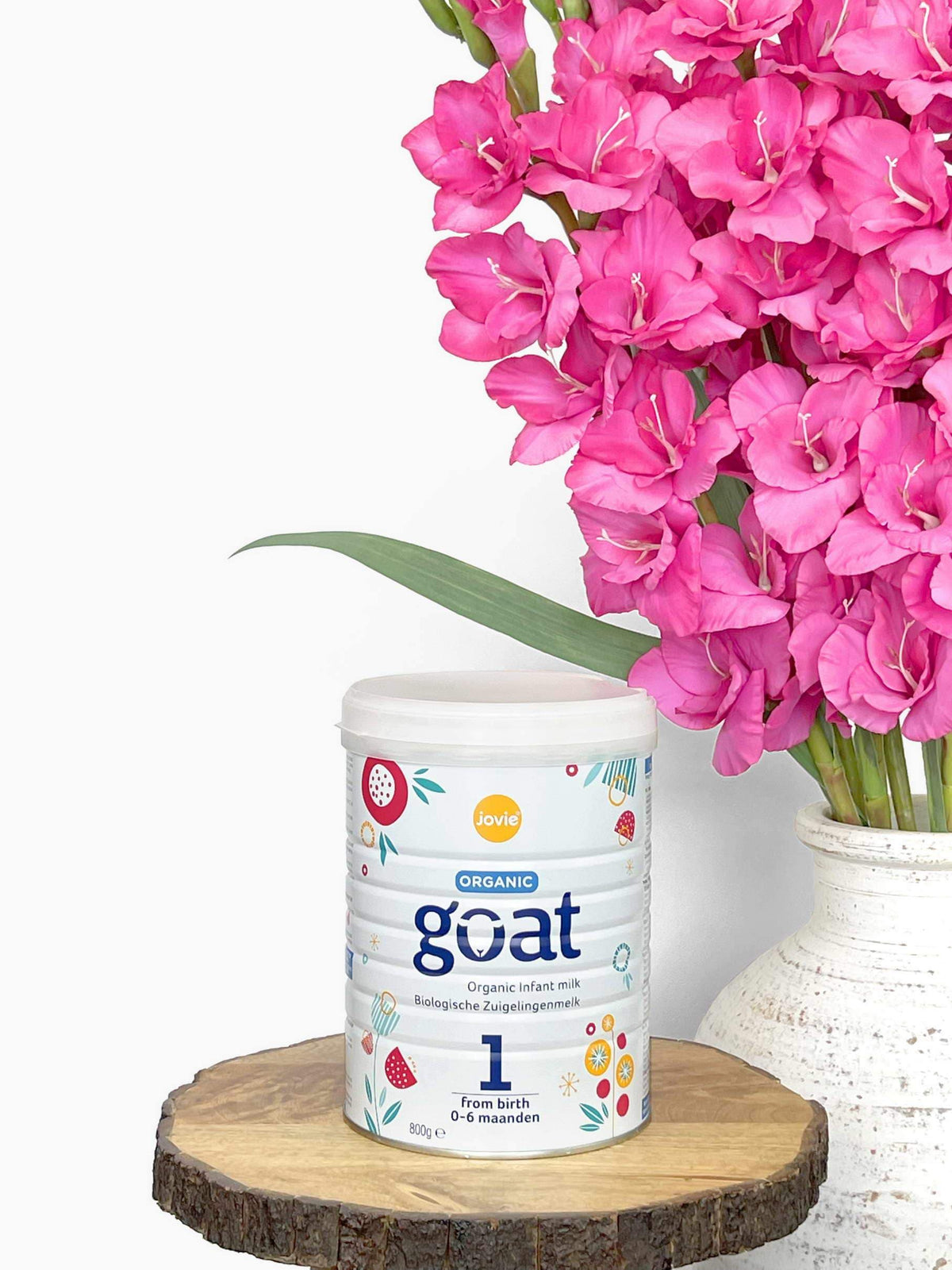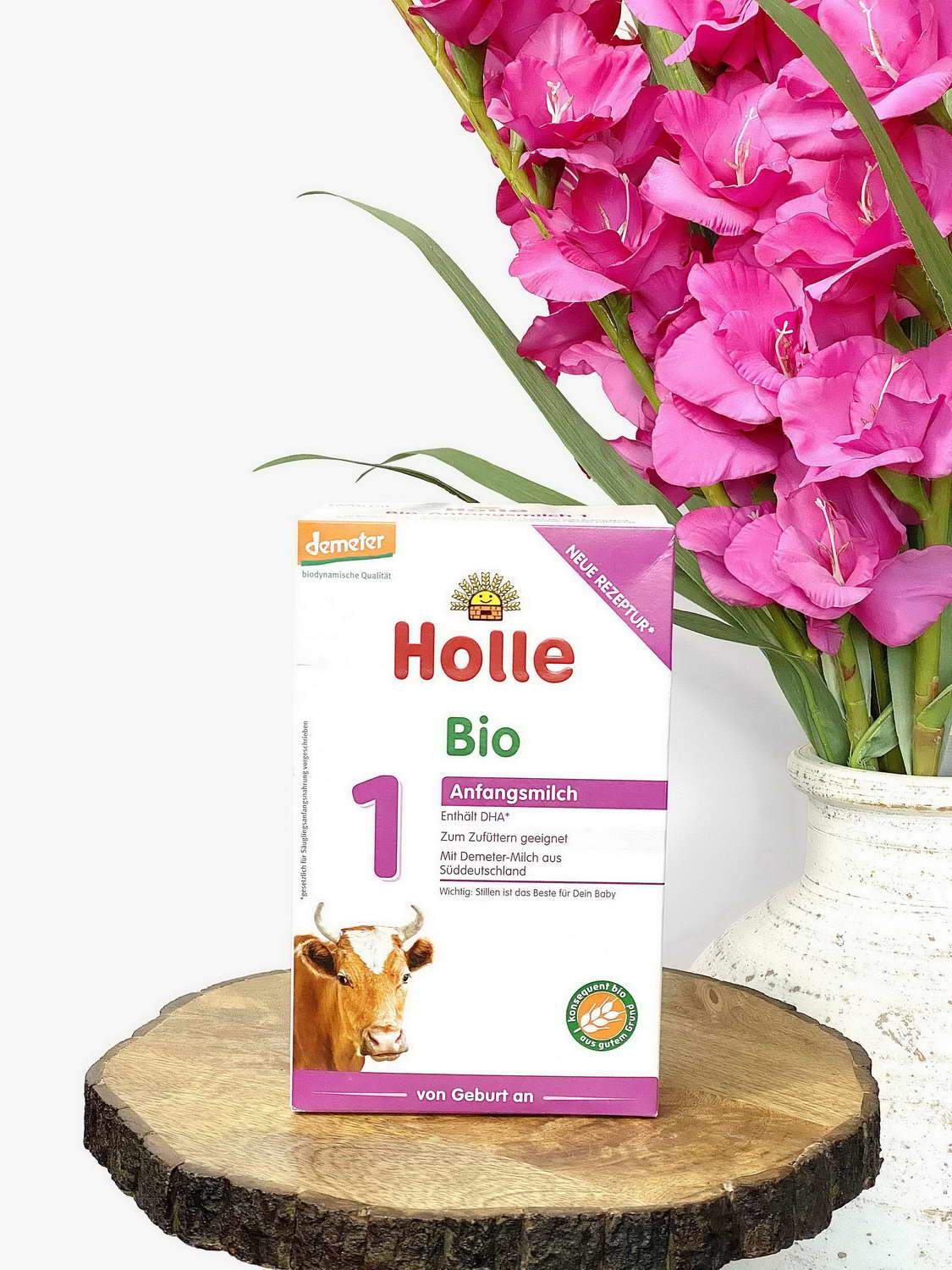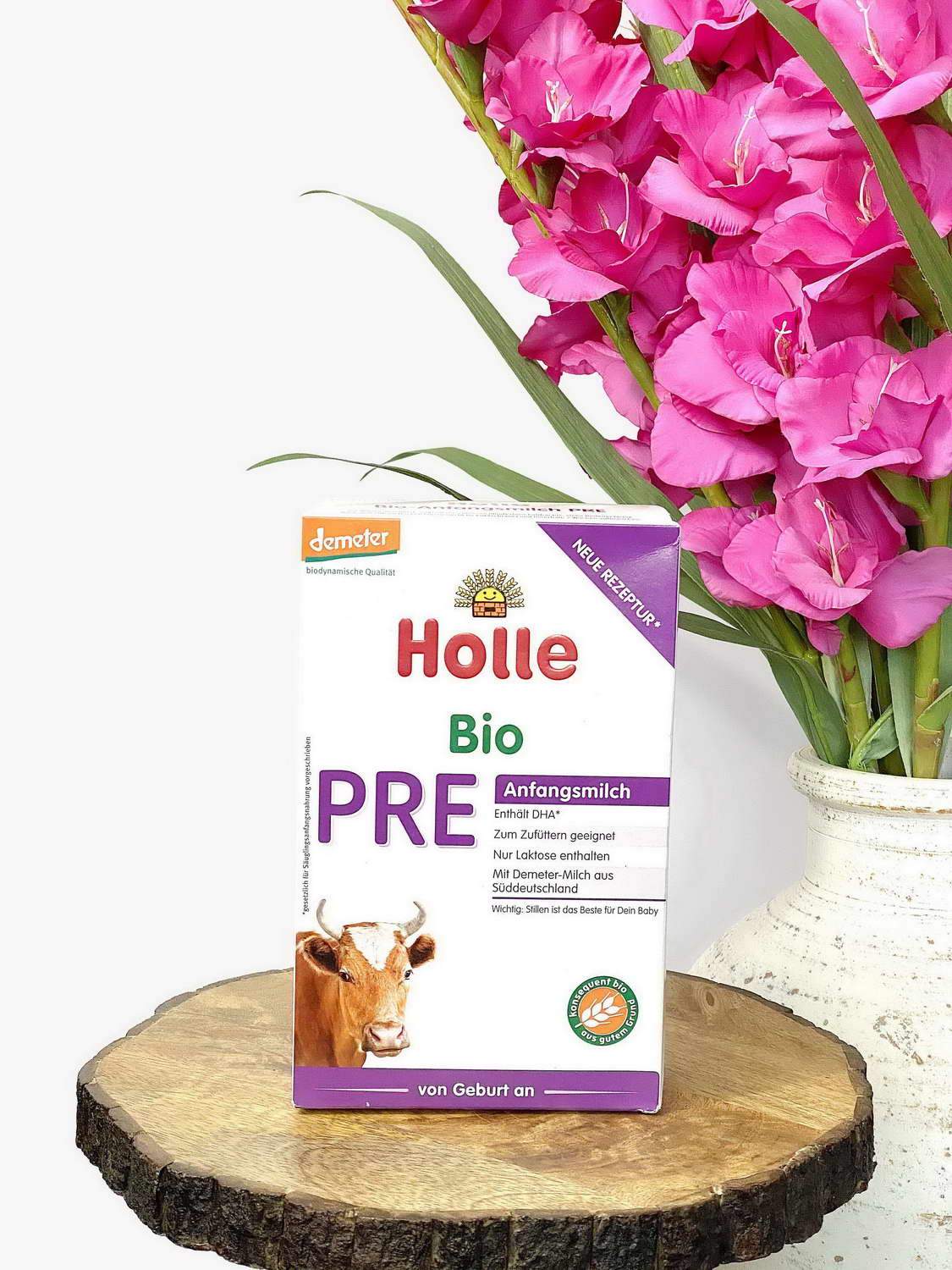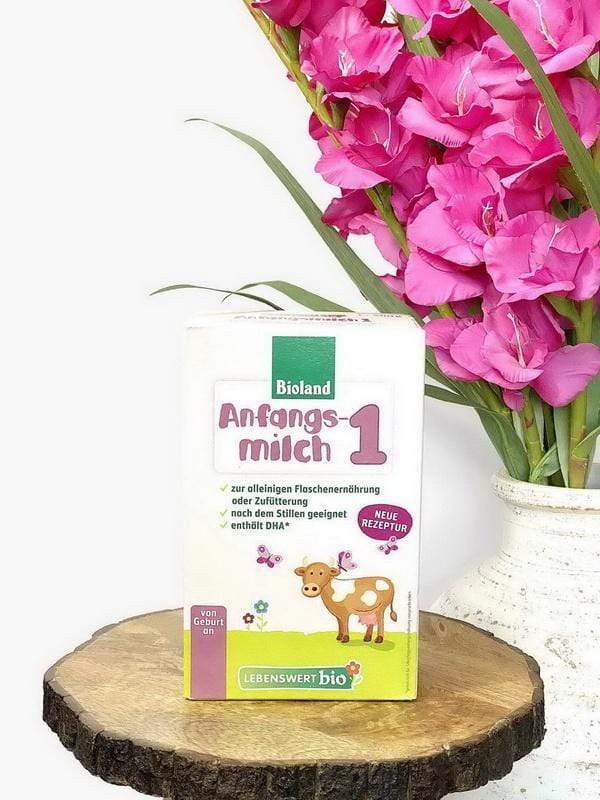Your cart is empty
Shop formulasYou have not added any favorites yet.
Shop formulasRecommended products
Combining Breastfeeding and Formula Feeding
Written by Renee Published on 05/16/24 Read Time 12 min

Breastfeeding is not necessarily an all-or-nothing experience. You can combine feeding with pumped milk for some meals and baby formula for others. This approach allows you to provide your baby with the health benefits of breastfeeding while also having another nutritional option available.
This article will explain how to combine breast milk and formula in the same bottle safely.
Table of Contents:
2. What Are the Advantages of Mixing Formula and Breast Milk?
3. How Will Supplementing Affect Your Milk Supply?
5. The Best Baby Formula for Supplementing
6. Hypoallergenic Formula for Breastfed Babies
7. Goat's Milk Baby Formula for Breastfed Babies
9. Mixing Breast Milk and Formula
10. Combine Feeding: Introducing a Bottle
11. Will supplementing lead to nipple confusion?
12. Only the Best For You Baby
Reasons For Supplementing

Giving your baby formula in addition to breastfeeding is called supplementing. The good news is that supplementing, when done with care, will not be as detrimental to your breastfeeding journey as you may have imagined.
Whether out of necessity , convenience, or simply a personal choice here are many reasons families choose this type of combination feeding.
What Are the Advantages of Mixing Formula and Breast Milk?
Many caregivers may find it challenging to maintain a sufficient milk supply, to breastfeed more than one child, or when returning to work. In such cases, combination feeding can be a practical solution.
Combination feeding offers a flexible and adaptable approach to infant nutrition. It can be an option for families who prefer to share the feeding responsibilities between partners or for any reason that suits their unique circumstances.
Regardless of why one may choose to do it, supplementing breastfeeding with baby formula can help ensure that the baby's nutritional needs are met while allowing the breastfeeding parent to adjust to the demands of daily life with a little one.
Going back to work
For some working moms, finding time or a place to pump at work may be too difficult or stressful. For others it may be that their breast milk supply decreased from the stress and change of returning to work. Either way, without a stockpile of breast milk stored in the freezer, it may be helpful to supplement your infant’s diet with baby formula.
Low Breastmilk Supply
For reasons such as a previous breast surgery, thyroid imbalances or other medical conditions your breast milk supply may not be where you would like. Many women for a variety of reasons experience low breastmilk supply. After consulting with a lactation consultant and/or your doctor, you may find a need to supplement with infant formula.
Your Partner Wants to Participate
In many families it is important for each parent to take part in infant feedings. By allowing your partner to give your baby a bottle of formula they too can share in the closeness and bonding of this special time.
Medical Issues or Doctor Recommendations
There are times when a physician recommends supplementing a breastfed baby with baby formula. Supplementation may be for a short period or an extended period of time.
Some of the reasons are as follows:
- If a baby is born prematurely
- For an infant that was born with a severe tongue tie or cleft palate that makes latching difficult
- If a newborn loses more than 10% of their body weight in the first week of life
- If a newborn has a hard time maintaining a healthy weight
- Concern that a baby is having less than six wet diapers in a 24-hour period
Twins, Triplets...
Maintaining a large enough breastmilk supply for more than one infant can be challenging. Breastfeeding multiples can also be physically and emotionally draining. Letting someone else give your littles a bottle of baby formula one or two times a day may just be the perfect break you need to recharge.
Your choice
Many mothers choose to combine breastfeeding and formula feeding as it allows them to balance the benefits of both methods. This approach is a personal preference and a valid choice for mothers who want to provide the best possible nutrition for their babies while maintaining their own physical and mental well-being.

How Will Supplementing Affect Your Milk Supply?
As you know your breast milk supply depends on your baby's demand for it, so the less often you nurse or pump, the less milk you will produce. You may find that combination feeding for your family is separate breast or bottle feeding.
Generally, breastfeeding sessions should be gradually replaced with formula feeding when the formula is introduced to replace breasts.
One proven method is to replace one weekly nursing session with a formula feeding session. Start by giving your baby one bottle of formula at around the same time each day. This will train your body to stop producing milk at that time.
Protecting Your Milk Supply
Baby formula can be more filling and may cause your baby to take the breast less. Regular breastfeeding at least 8-12 times a day helps you keep a healthy milk supply, especially in the early weeks.
While combination feeding, there are ways that will help you keep a healthy milk supply.

Introducing Baby Formula
When going from exclusively breastfeeding to supplementing it will be a big change for mom and baby. If it is not medically necessary to begin supplementing right away, we recommend introducing formula slowly. This will allow mom’s body and baby to make the change gradually.
Effects on Mom
As you know your body makes breast milk based on supply and demand. As you start to supplement it may take a few days to adjust to the reduced demand.
While waiting for your body to catch up your breasts may become uncomfortably engorged, which can lead to embarrassing leakage, clogged ducts or even mastitis — a painful infection of the breast tissue.
If possible, introduce formula slowly and gradually replacing one breastfeeding session a week. Then, giving your baby one bottle of formula at around the same time each day. This will train your body to stop producing milk at that time.
If you are pressed for time, consider pumping or hand expressing just enough to relieve encouragement and feel relief. Pumped or expressed breast milk can be used at a later time by itself or mixed with European baby formula.
Effects on Baby
Babies are not always easily swayed to the bottle, especially if they have been breastfeeding for any length of time. Do not be surprised if your little one refuses the bottle at first. With patients and time your infant will soon be a pro.
As babies transition to combination feeding you may notice that they go longer between feedings. Formula digests at a slower rate than formula so babies feel fuller longer and sleeps more.
Your baby's stool may look and smell different. It will be about the consistency of peanut butter, be tan or brown in color, and have a stronger odor. Your baby will probably have less bowel movements than when breastfeed exclusively.

The Best Baby Formula for Supplementing
Choosing the right kind of baby formula is an important step for successful supplementing. With so many different types of baby formula on the market and online, it can be difficult to know where to begin.
Looking for ingredients that closely mimic breast milk in taste, texture and organic nature without unnatural sugars or soy is a great place to start.
Organic European baby formula uses only the highest quality ingredients, sourced from organic farming practices, and held to the strictest regulations.
Wear American baby formulas that use sugars and copying breastmilk as closely as possible, European baby formula is free from antibiotics, hormones, GMOs, chemicals and pesticides.
European baby formula is known around the world for the very best in clean, healthy infant nutrition.
Hypoallergenic Formula for Breastfed Babies
The specially designed baby formula from My Organic Company offers gentle nutrition that is perfect for supplementing.
100% organic baby formula made with cow’s milk proteins that are divided into small fragments. This reduces the allergenic properties and digestive discomforts that can be associated with combined feedings.
Special fiber-based prebiotic and a probiotic from lactic acid bacteria, similar to those found in breastmilk, work together to add extra tummy support and Omega-3 and 6 LCPs (DHA and ARA) for brain development.

Goat's Milk Baby Formula for Breastfed Babies
For littles ones that are born with a cow’s milk allergy or have extremely sensitive tummies due to medical issues or premity we recommend organic goat milk baby formula.
Goat milk-based baby formula proteins generally form a smaller, softer, and looser curd in the gut than found in a cow milk-based formula, which makes naturally easier to digest and reduces allergies found in cow’s milk baby formula.
Each goat's milk formula provides essential fatty acids similar to breastmilk that acts as a prebiotic,making digestion and absorption easier. Healthy gut bacteria means less issues with sensitivity and a more comfortable baby.
100% Organic goat’s milk naturally contains vitamin A, vitamin C and minerals magnesium and calcium and has a taste and texture baby’s love because it mimics breast milk.

Find the Perfect Formula
Not every formula is right for every baby. When choosing your formula, make sure to try one box/can at a time. You don’t want to buy in bulk until you know your baby does well on that brand of European baby formula brand.
Mixing Breast Milk and Formula
Mixing breast milk and preperared baby formula in the same bottle is just fine. Some families find it helps give babies a familiar taste which may make it easier to transition to supplementing.
Carefully follow the formula preparation instructions before combining formula with breast milk. Adding powdered formula directly to breastmilk can lead to an over-concentration of nutrients that may be dangerous.

Combine Feeding: Introducing a Bottle
If your baby is used to taking a bottle of breastmilk, the transition to formula may be a bit easier. If your little one has never had a bottle, it is not uncommon for babies to refuse the bottle at first.
When adding formula to your baby's feeding routine we recommend that families use a baby bottle that closely mimics the shape and feel of the breast. Start with a wider shaped baby bottle that has a soft nipple.
It may take a few baby bottle brands and nipple shapes before you find the bottle baby prefers. Most importantly, try not to get discouraged when your baby rejects a bottle, it may take a few tries.
Bottle Refusal
It is not very common but sometimes, a breastfed baby will prove to be incredibly stubborn and refuse to take formula from a bottle. If after trying every technique your baby is still rejecting the bottle, or if your baby begins refusing the bottle after taking it previously, you can also try:
Distracting the baby. Try giving the bottle when your baby is calm and a little distracted, for example, by offering a bottle while taking a walk outside or away from home.
Heating things up. Try warming the milk and the bottle nipple, to make the experience more similar to breastfeeding.
Offering a taste. For a newborn using a syringe can be helpful. Dribbling a little milk into your baby’s mouth and then giving the bottle helps trigger automatic suckling reflux.
Bypassing the bottle. If your baby is 6 months or older, try offering a cup with formula instead of a bottle.

Will supplementing lead to nipple confusion?
One of the biggest worries about going back and forth between breast and bottle is nipple confusion. Luckily, the term is often overused, and most babies do fine.
If your little one has trouble, keep at it and get some backup if necessary. Above all, try not to worry about nipple confusion; there's a good chance your baby won't show any signs of it at all.
Check out our article for some great tips that can help make this time easier: Transitioning from Breast to Bottle.

Only the Best For You Baby
Whether you breastfeed, formula feed, or use a combination of the two, remember that making sure your baby is getting the best nutrition is what matters most.
My Organic Company carries only pure organic nutrition that is a perfect supplement to breastfeeding.
Please be aware that this information is based on general trends in babies, and it is not medical advice. Your doctor should be your first source of information and advice when considering any changes to your child’s formula and when choosing your child’s formula. Always consult your pediatrician before making any decisions about your child’s diet or if you notice any changes in your child.
Breastfeeding is the best nutrition for your baby because breast milk provides your child with all the essential nutrients they need for growth and development. Please consult your pediatrician if your child requires supplemental feeding.
Author Bio:
Renee is an infant nutrition consultant and a full-time writer. Due to her experience in seeking better nutrition for her premature daughter, she advocates for European baby formula. Renee is fully committed to contributing value to this critical area of child development as a mother of a large family, foster parent, and adoption supporter.
Renee enjoys camping outdoors, swimming, and hiking with her family when she is not working.
















